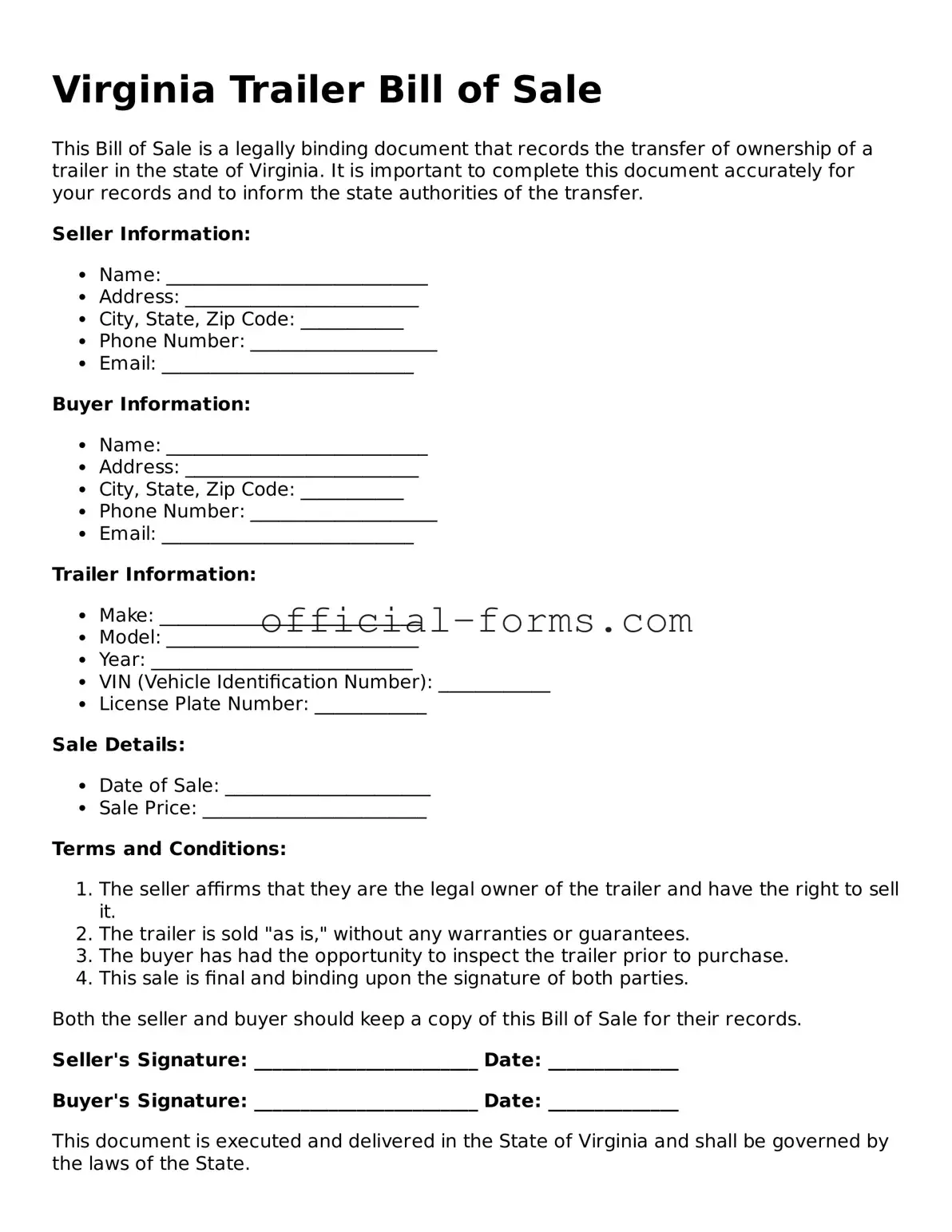Official Virginia Trailer Bill of Sale Document
The Virginia Trailer Bill of Sale form is a legal document that records the sale and transfer of ownership of a trailer in the state of Virginia. This form serves as proof of the transaction between the seller and the buyer, ensuring that both parties have a clear understanding of the terms involved. Proper completion of this document is essential for a smooth transfer of title and registration.
Open My Trailer Bill of Sale Now

Official Virginia Trailer Bill of Sale Document
Open My Trailer Bill of Sale Now
Don’t leave your form incomplete
Finish Trailer Bill of Sale online quickly from start to download.
Open My Trailer Bill of Sale Now
or
➤ PDF
